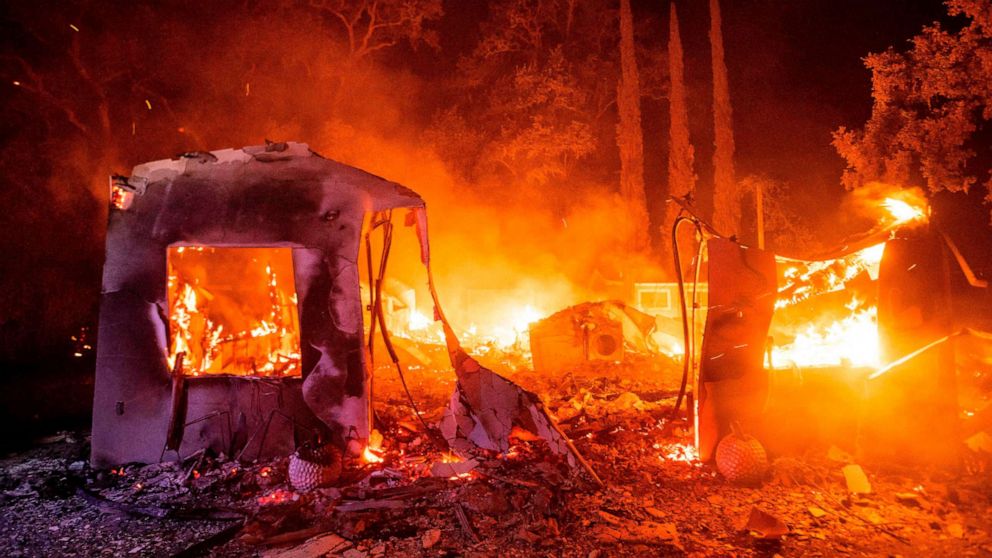California fires update: Thousands of structures threatened as many remain evacuated
Dozens of fires continue to burn in California Thursday as thousands of structures are threatened and many people remain under evacuation orders.
The LNU Lightning Complex Fire, which includes Napa, Sonoma and Lake Counties in California, has burned more than 124,000 acres and is 0% contained. It has already destroyed 105 structures and 125,000 structures are still threatened.
The commander of Travis Air Force base in Solano County, California, has ordered all non-mission essential personnel to evacuate the base due to the LNU Lightning Complex Fire, according to a statement released by the 60th Air Mobility Wing Wednesday night.
"There is currently no lodging available on Travis Air Force Base and members are directed to stay with family or friends, proceed to evacuation centers, or secure commercial lodging outside of the evacuation area," the statement read.
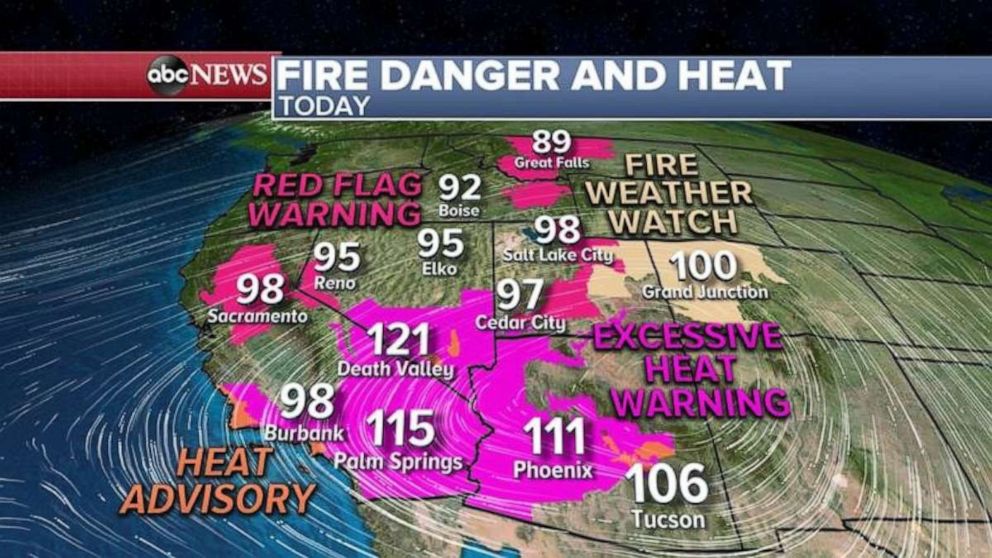
Meanwhile, the SCU Lightning Complex Fires, which encompasses parts of Santa Clara, Alameda, Contra Costa, San Joaquin and Stanislaus Counties, is 102,000 acres and is currently threatening nearly 4,00 structures. It has 5% contained.
The SCU fires are made up of 20 different blazes.
In San Mateo and Santa Cruz counties, the CZU August Lighting Complex Fires are 0% contained and are currently burning 25,000 acres. More than 6,500 structures are threatened and more than 22,000 people have been forced to evacuate.
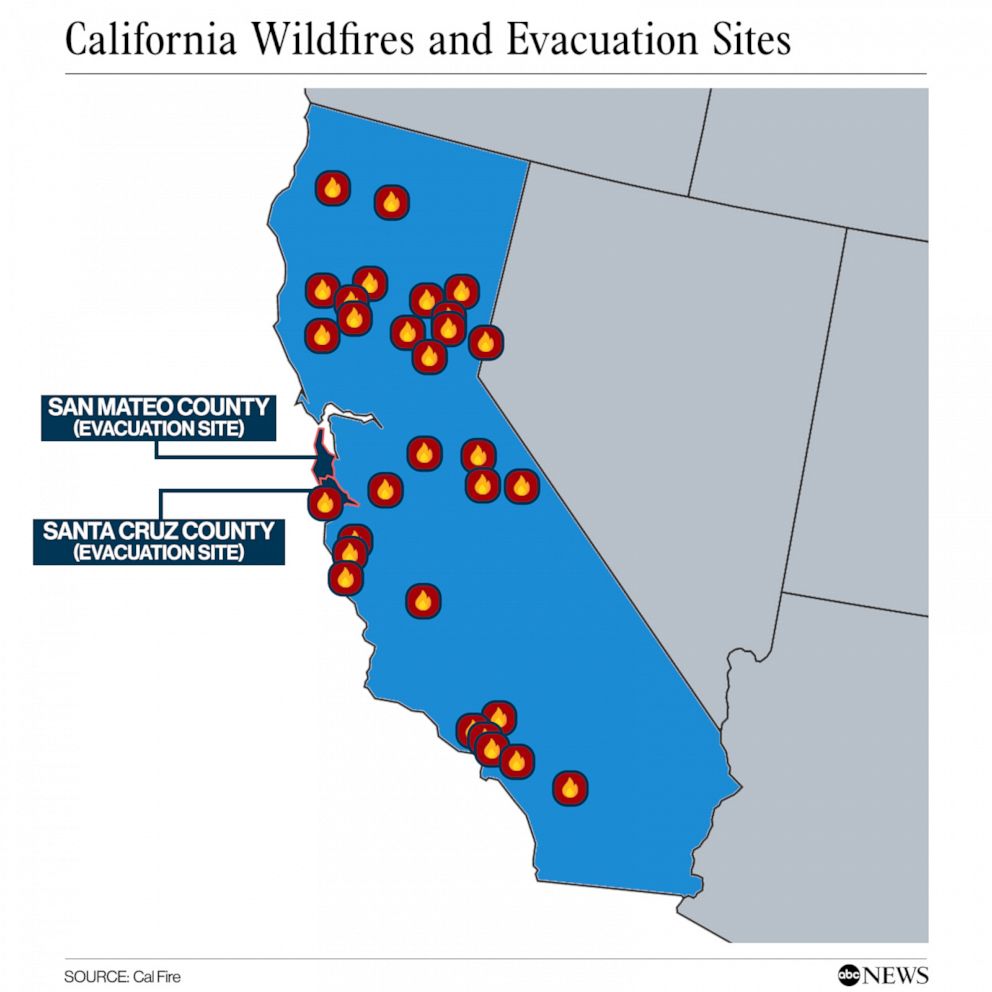
A Red Flag Warning continues Thursday morning from California to Montana, where gusty winds near 35 mph could spread the fires.
Record heat has also not been helping the firefighters deal with all blazes, which were sparked by lightning. A monsoon storm and tropical moisture from the Pacific have been creating thunderstorms that produced all the lightning in the last week, but because it's so dry, most of the lightning comes without rain.
Through the West, the oppressive heat will continue.
On Wednesday, Las Vegas (113 degrees), Death Valley, California, (124 degrees), Salt Lake City, Utah, (100 degrees), Phoenix (115 degrees) and Tucson, Arizona (111 degrees( were just some of the places breaking record high temperatures.
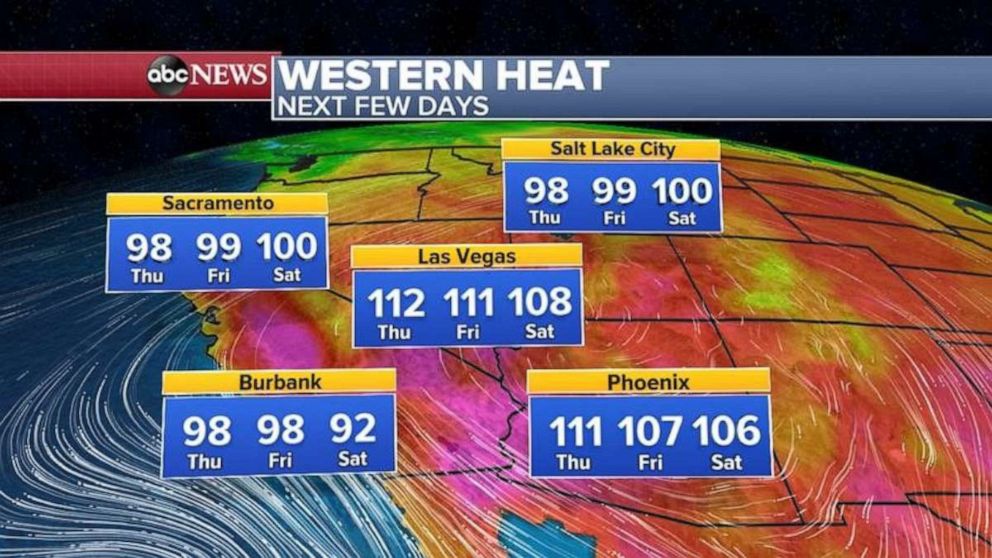
Excessive heat warnings and advisories continue for southern California into Nevada, Arizona and Utah Thursday, when more record highs are possible throughout the Southwest.
Unfortunately for the region, there is not a lot of relief for the Southwest in sight. Temperatures might actually get hotter for some cities this weekend, like Sacramento, California, and Salt Lake City.
This heatwave could continue in the Southwest into next week.
Turning to the tropics, there are three storms worth monitoring in the Atlantic.
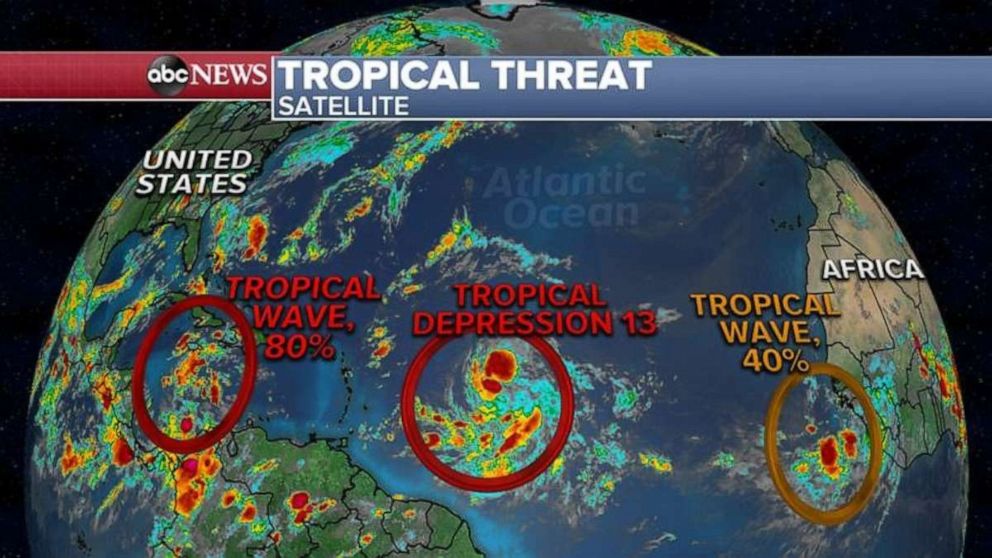
One of them has become a tropical depression overnight and is forecast to be named Laura in the next 24 hours as it moves just north of the Caribbean Islands. It moves toward the Bahamas and Florida by the end of the weekend into early next week.
This storm is forecast to stay as a tropical storm through the time period, with winds up to 70 mph as it approaches Florida.
The other tropical disturbance is in the Caribbean now and is forecast to become a tropical depression by Friday or Saturday as it moves over Yucatan Peninsula this weekend.
After that, it will move into the Gulf of Mexico and could bring heavy rain and gusty winds to Texas.
Finally, a third tropical wave is still far away near the African coast, but now has a 40% chance for development into a tropical cyclone. It is expected to move east over the Atlantic Ocean.
ABC News' Matthew Seyler contributed to this report.
